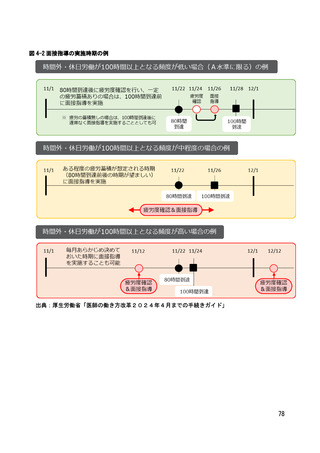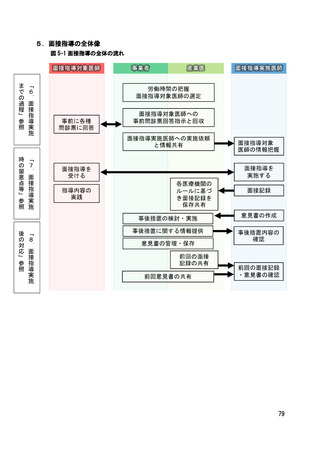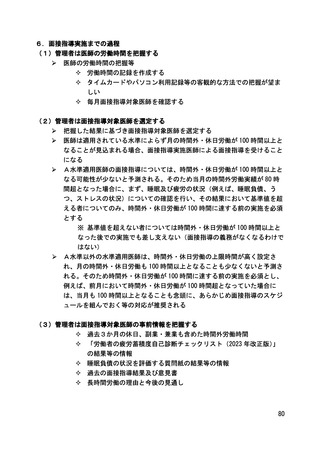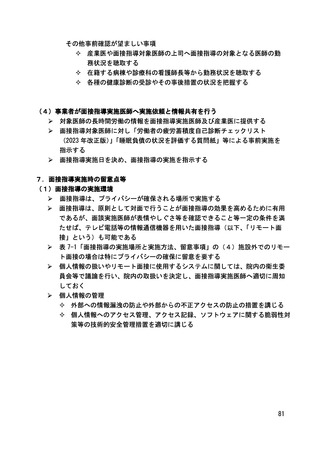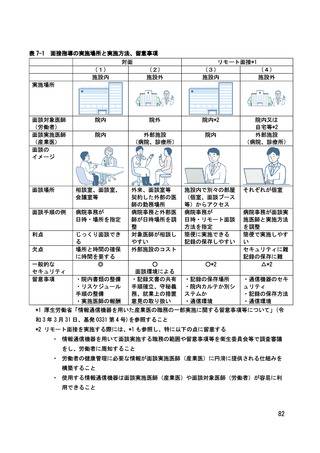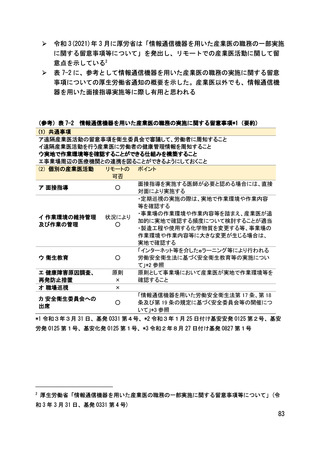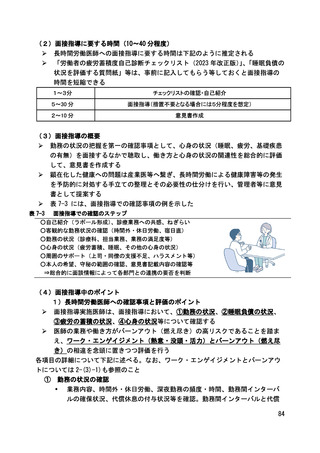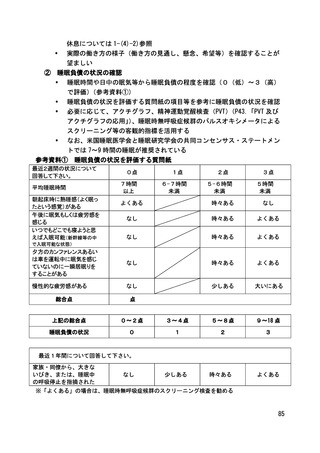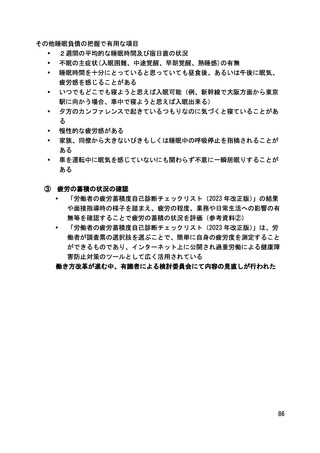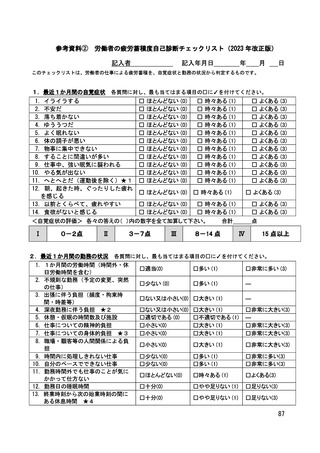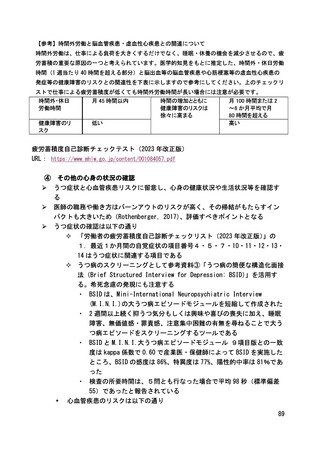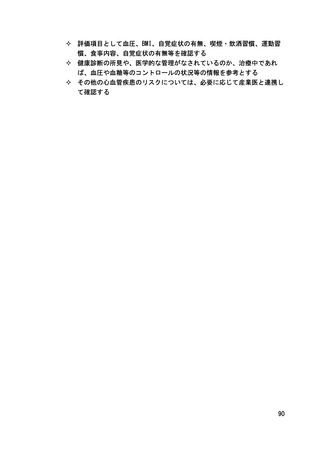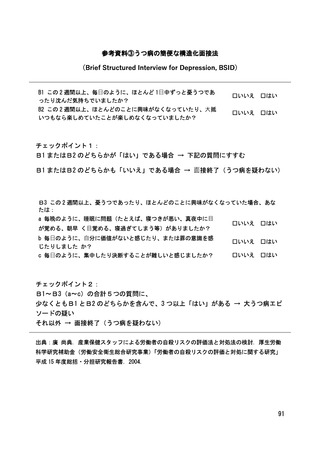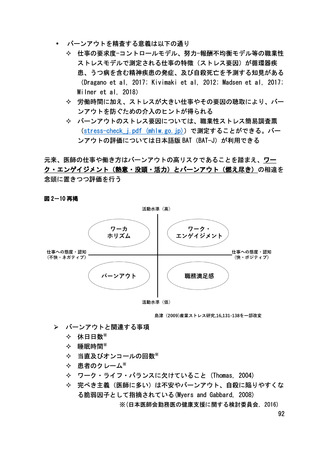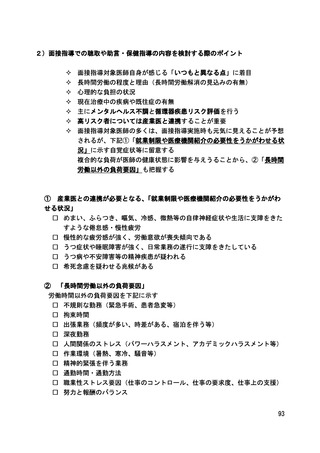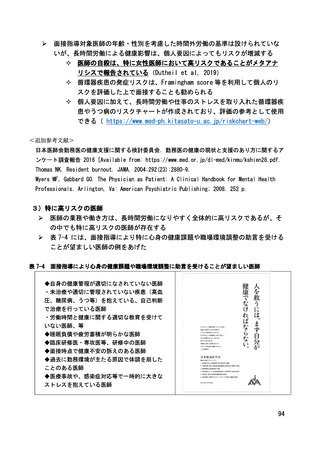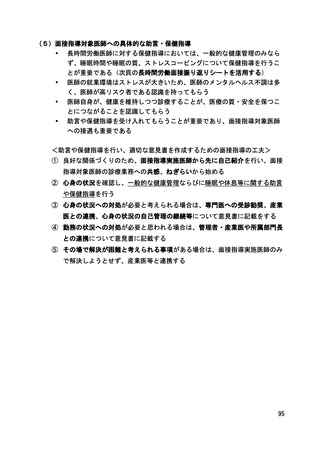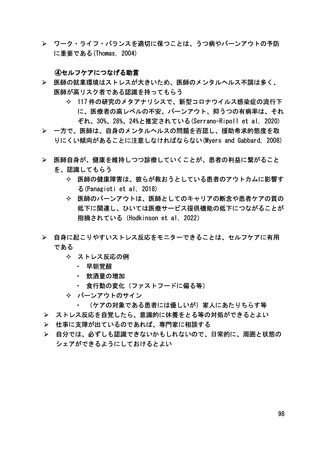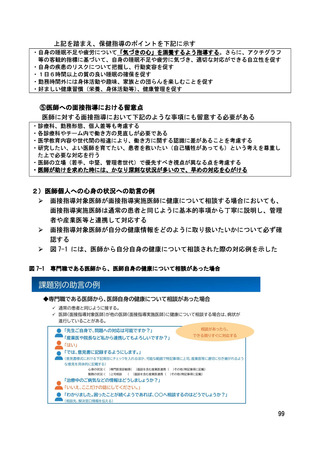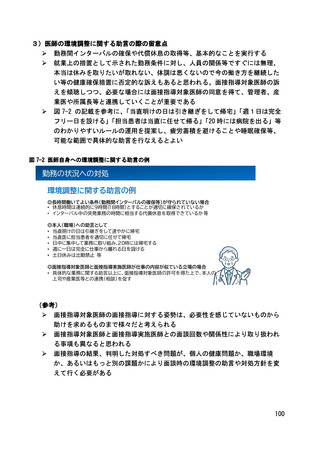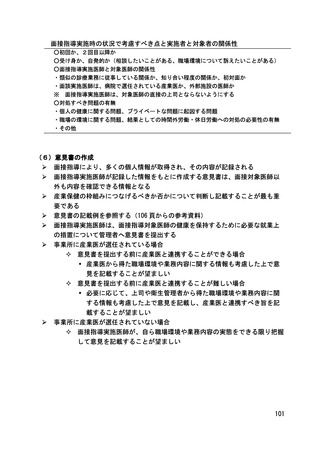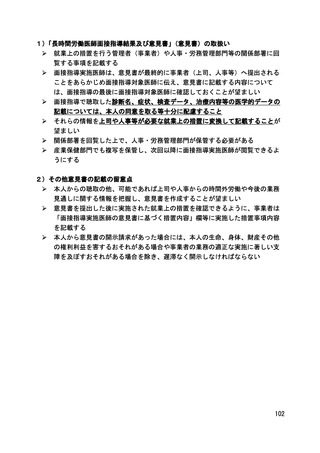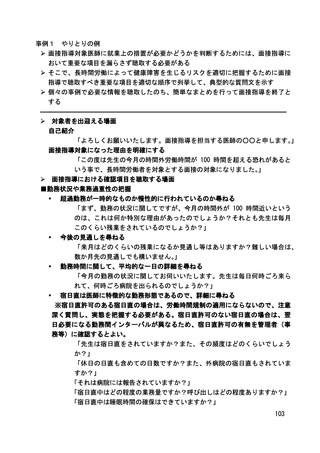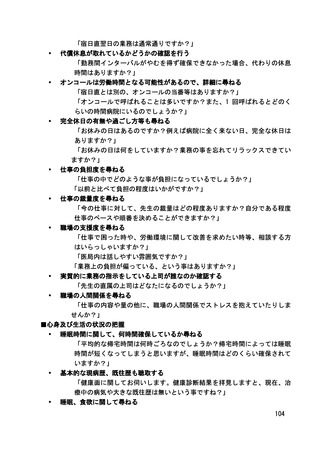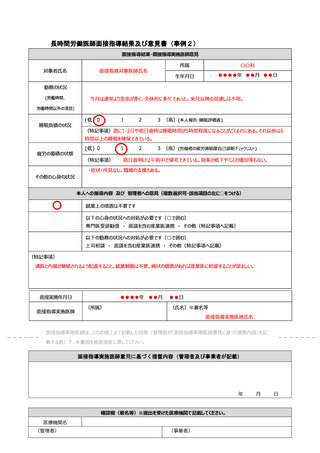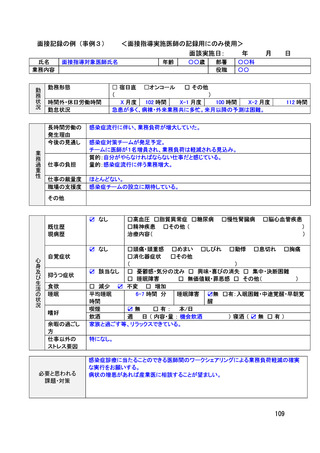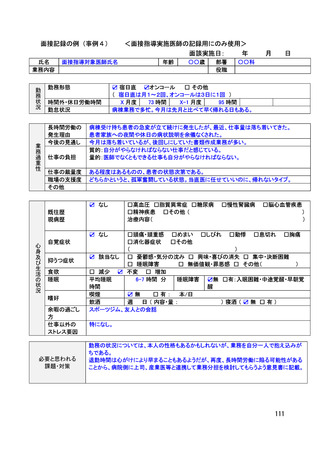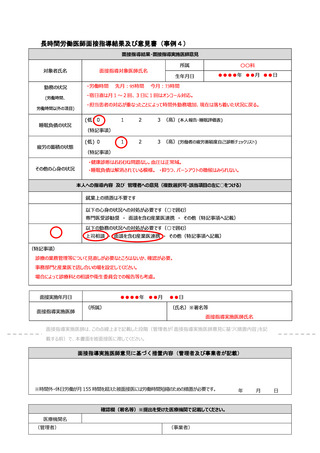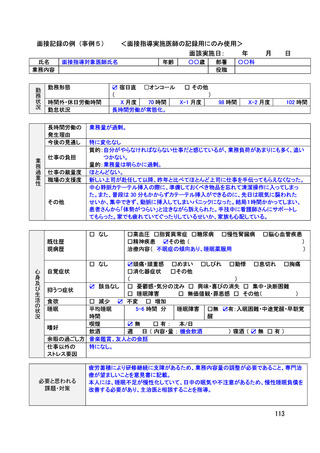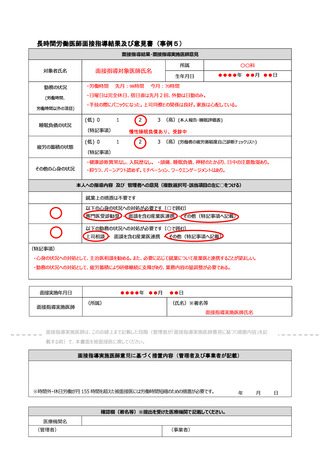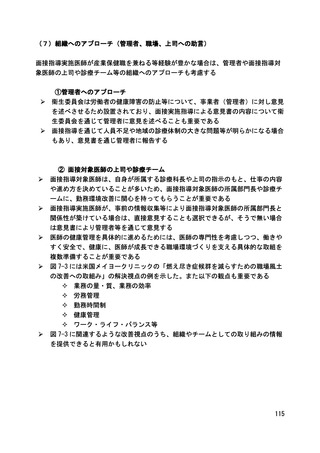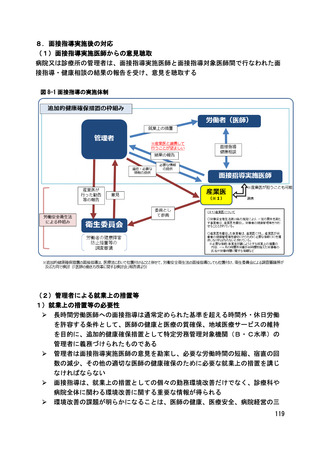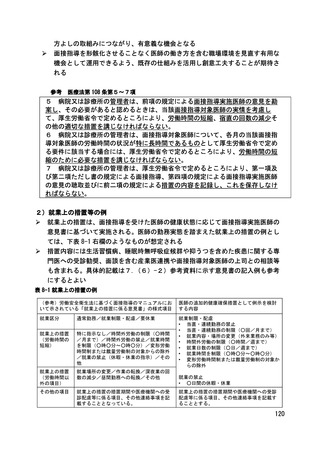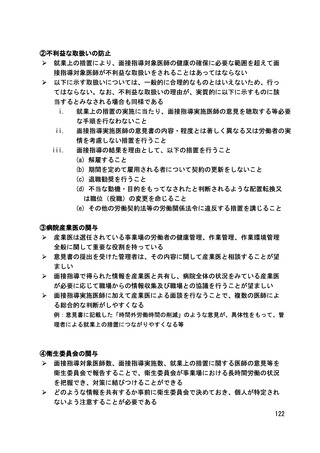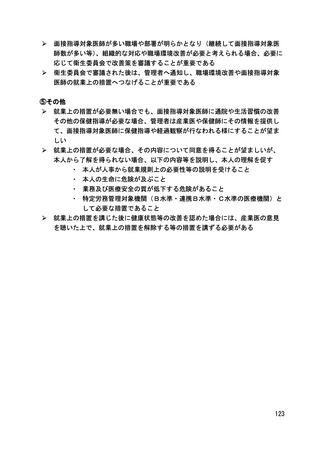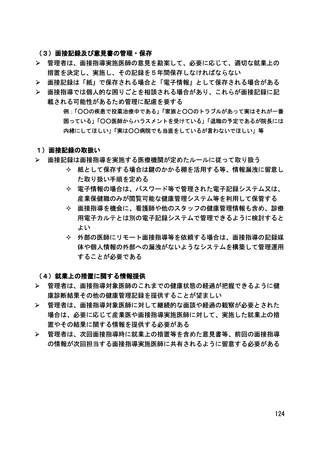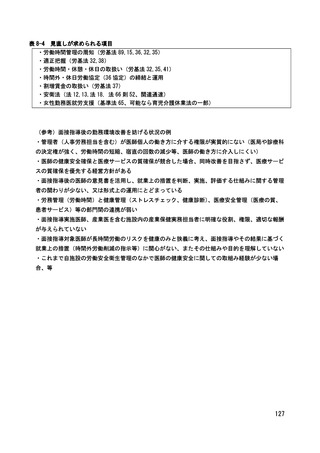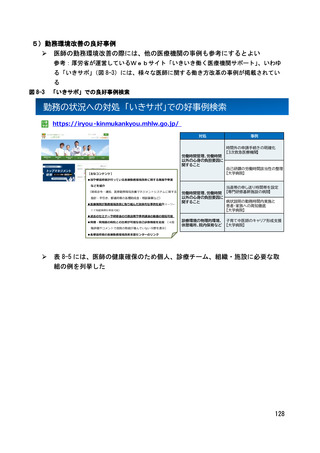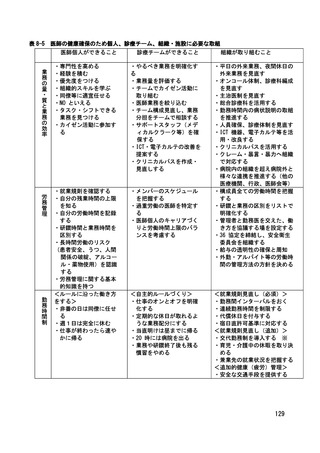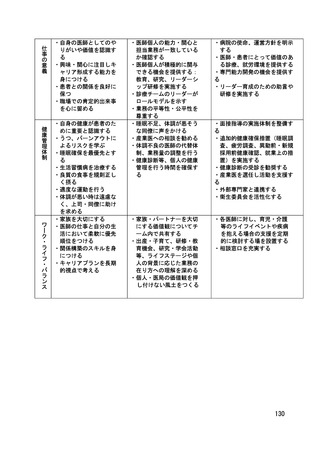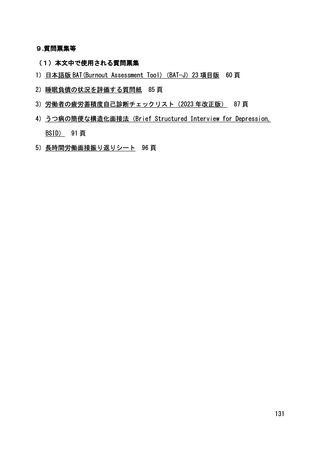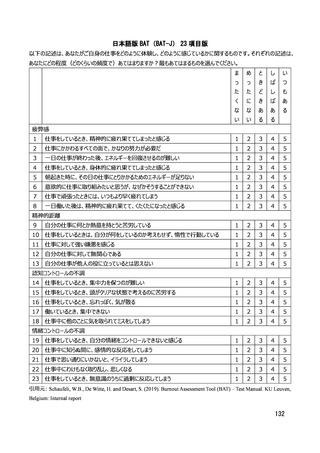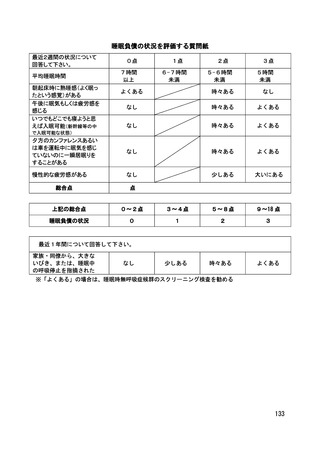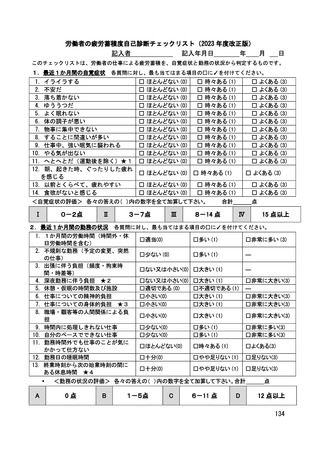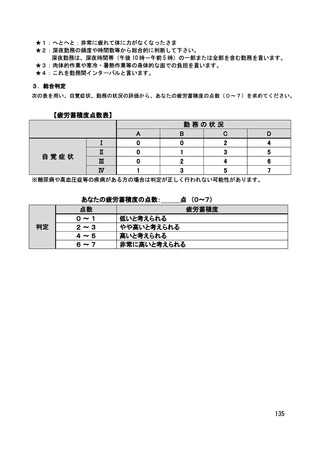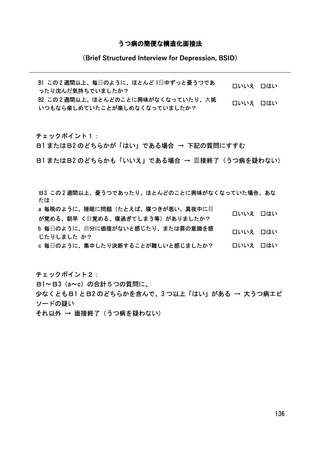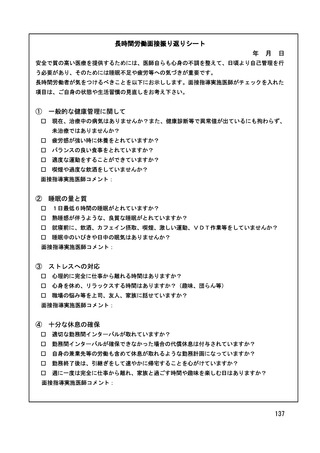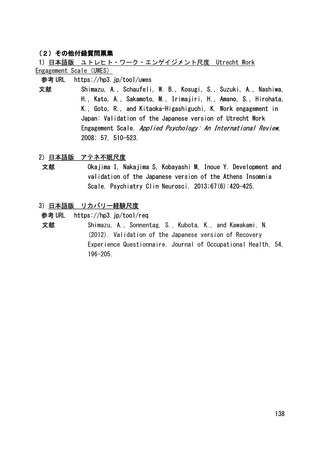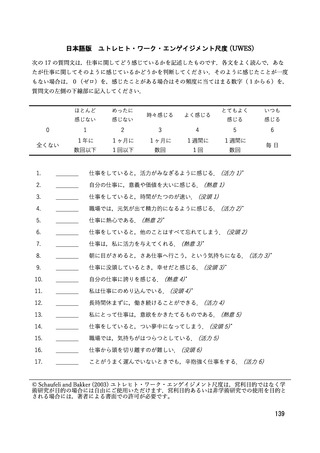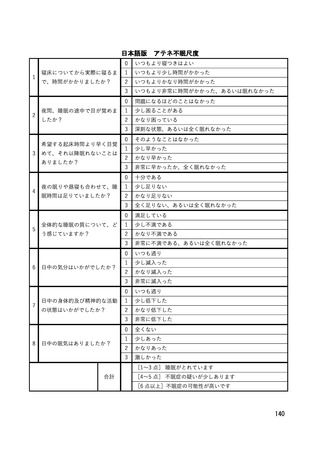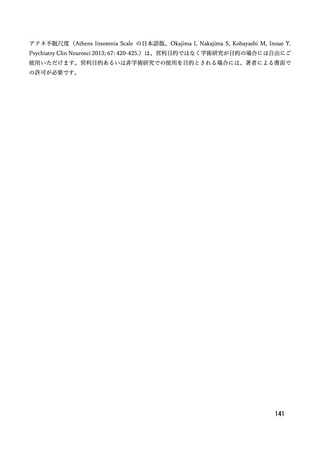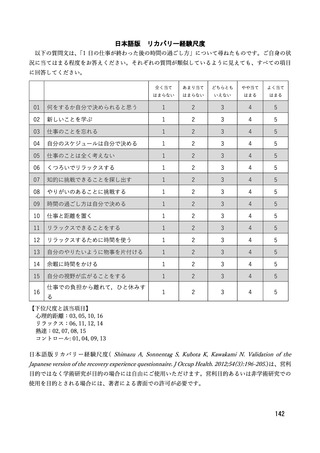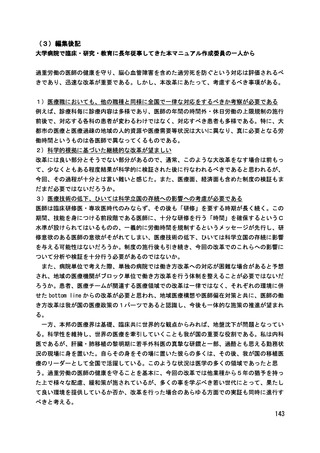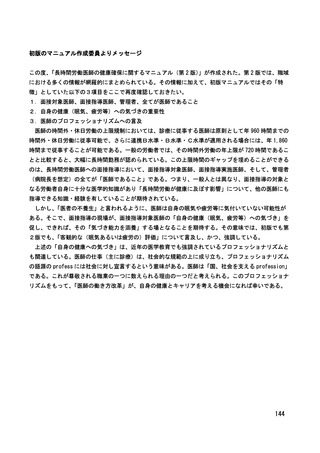参考資料1-1_長時間労働医師への健康確保措置に関するマニュアル(改訂版) (69 ページ)
出典
| 公開元URL | https://www.mhlw.go.jp/stf/newpage_35532.html |
| 出典情報 | 医師の働き方改革の推進に関する検討会(第18回 10/12)《厚生労働省》 |
ページ画像
プレーンテキスト
資料テキストはコンピュータによる自動処理で生成されており、完全に資料と一致しない場合があります。
テキストをコピーしてご利用いただく際は資料と付け合わせてご確認ください。
theorizing. In M. J. Winnubst, and C. L. Cooper (Eds.), The handbook of work and health
psychology, pp. 2003; 383-425. Chichester: Wiley.
18. 北岡(東口) 和代, 荻野佳代子, 増田真也.日本版 MBI-GS (Maslach Burnout Inventory-General
Survey) の妥当性の検討. 心理学研究, 2004; 75, 415-419.
19. Deligkaris, P., Panagopoulou, E., Montgomery, A., and Masoura, E. Job burnout and cognitive
functioning: A systematic review. Work and Stress. 2014; 28, 107-123.
20. Heiden, C., and Hoogduin, C. A. L. Burn-out: Diagnostiek en behandeling. Tijdschrift voor
Bedrijfs- en Verzekeringsgeneeskunde, 2010; 10, 48-53 (in Dutch).
21. Lee, R. T., and Ashforth, B. E. On the meaning of Maslach’s three dimensions of burnout.
J Appl Psychol, 1990; 75, 743-747.
22. Schaufeli, W. B., and Taris, T. W. The conceptualization and measurement of burnout: Common
ground and worlds apart. Work Stress, 2005; 19, 256-262.
23. Lastovkova, A., Carder, M., Rasmussen, H.M., and Sjoberg, L., et al. Burnout syndrome as
an occupational disease in the European Union: an exploratory study. Ind Health, 2017; 56,
160–165.
24. Schaufeli, W. B., and De Witte, H. Burnout Assessment Tool. www.burnoutassessmenttool.be
(2023年 2 月19 日アクセス) .
25. Sakakibara K, Shimazu A, Toyama H, Schaufeli WB. Validation of the Japanese Version of the
Burnout Assessment Tool. Front Psychol. 2020; 11: 1819.
26. Buonomo, I., Santoro, P. E., Benevene, P., Borrelli, I., Angelini, G., Fiorilli, C.,
Gualano, M. R., and Moscato, U. Buffering the Effects of Burnout on Healthcare
Professionals' Health-The Mediating Role of Compassionate Relationships at Work in the
COVID
Era.
Int
J
Environ
Res
Public
Health.
2022;
19(15),
8966.
https://doi.org/10.3390/ijerph19158966
27. de Vries JD, Bakker AB. The physical activity paradox: a longitudinal study of the
implications
for
burnout.
Int
Arch
Occup
Environ
Health.
2022;
95(5):965-979.
doi:10.1007/s00420-021-01759-y2021; https://doi.org/10.1007/s00420-021-07159-y.
28. Otto MCB, Van Ruysseveldt J, Hoefsmit N, Dam KV. The Development of a Proactive Burnout
Prevention Inventory: How Employees Can Contribute to Reduce Burnout Risks. Int J Environ
Res Public Health. 2020;17(5):1711. doi:10.3390/ijerph17051711
29. Daniels S, Clemente DBP, Desart S, et al. Introducing nature at the work floor: A naturebased intervention to reduce stress and improve cognitive performance. Int J Hyg Environ
Health. 2022;240:113884. doi:10.1016/j.ijheh.2021.113884
30. 久保誠.バーンアウトの心理学―燃え尽き症候群とは. 東京: サイエンス社. 2004.
31. 田尾正夫.ヒューマンサービスにおけるバーンアウトの理論と測定.京都府立大學學術報告(人
文), 1987; 39, 99-112.
64


















































































